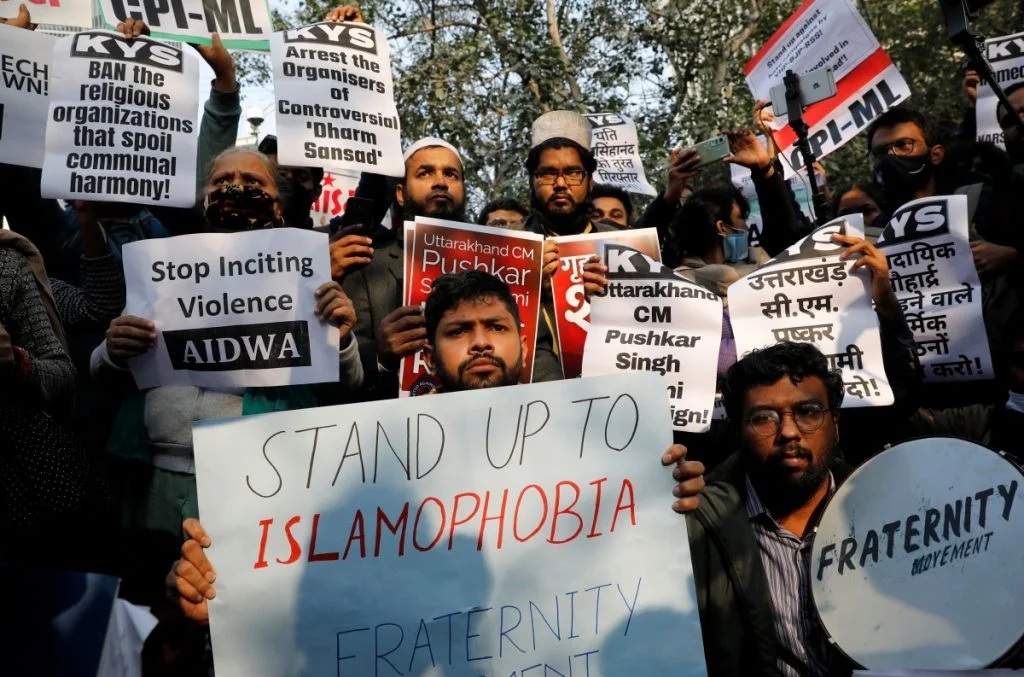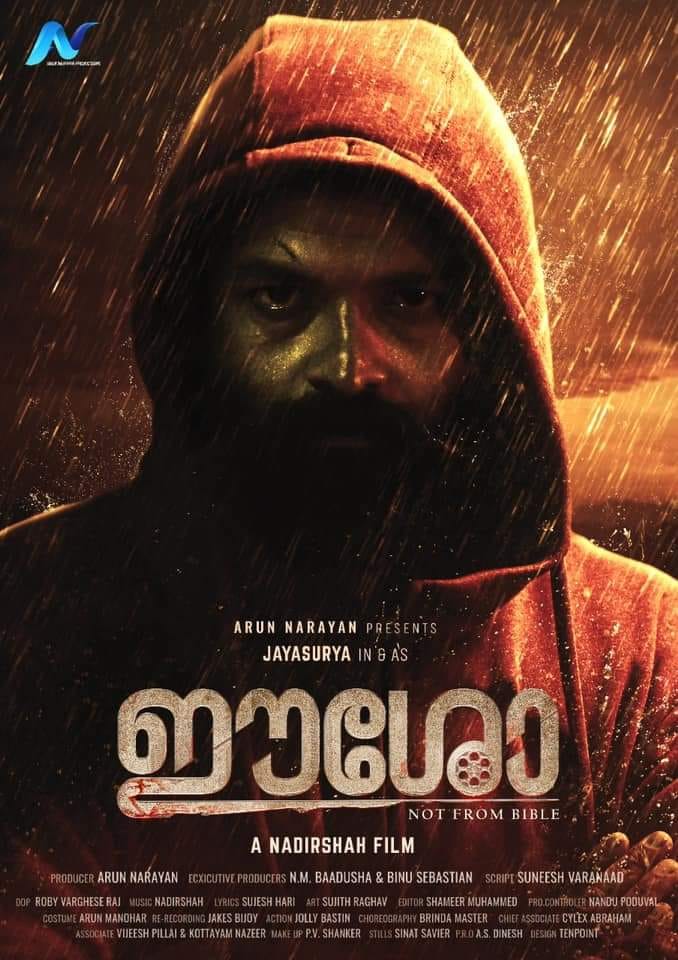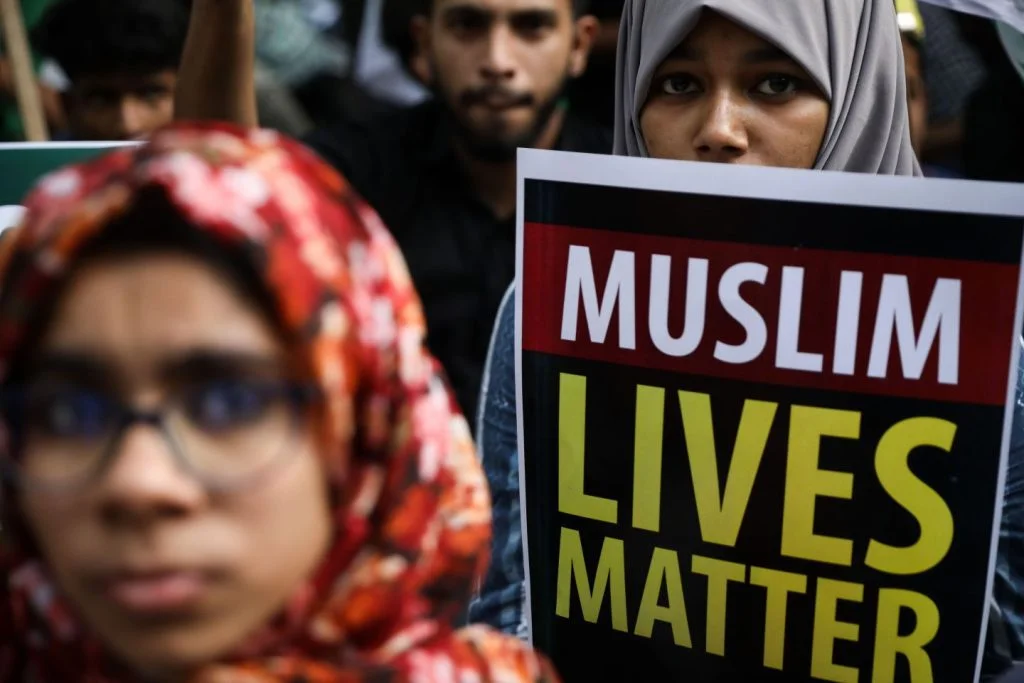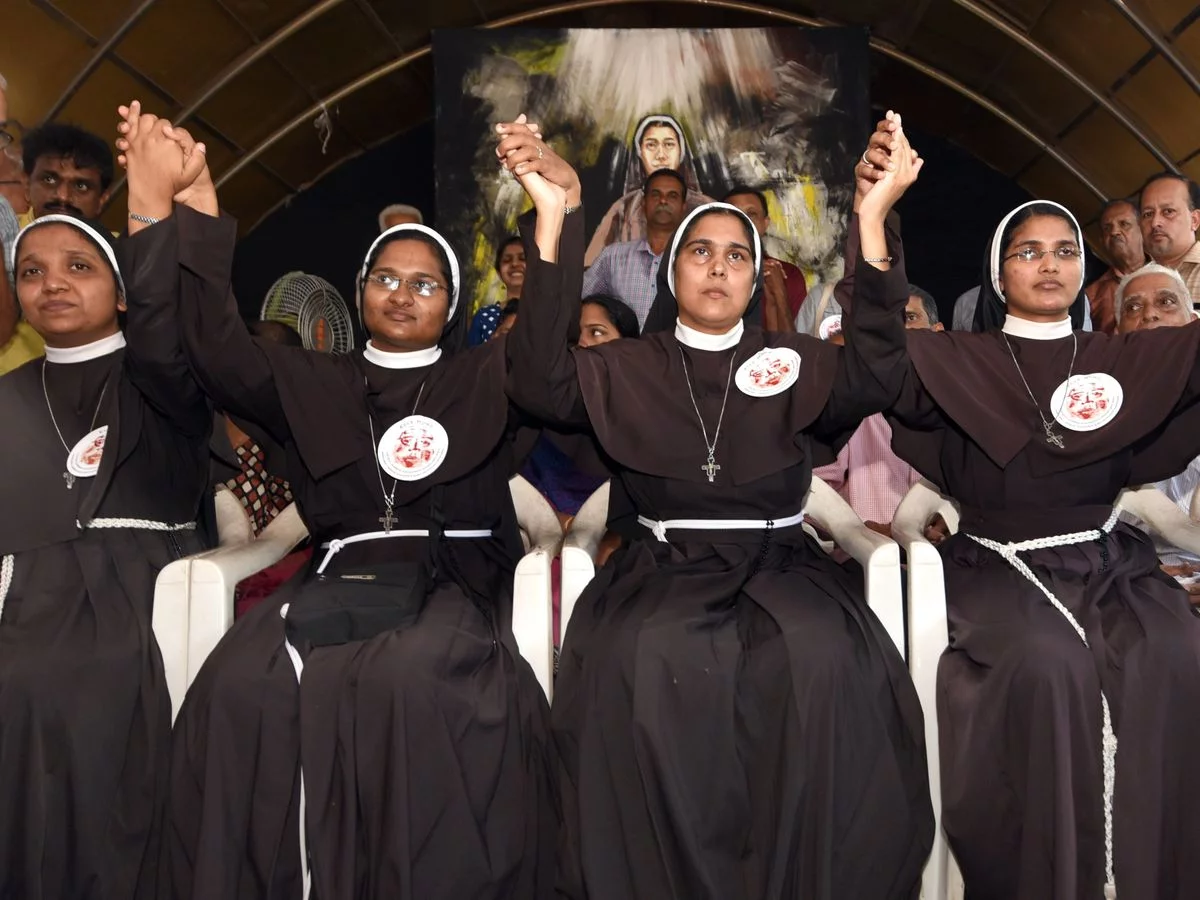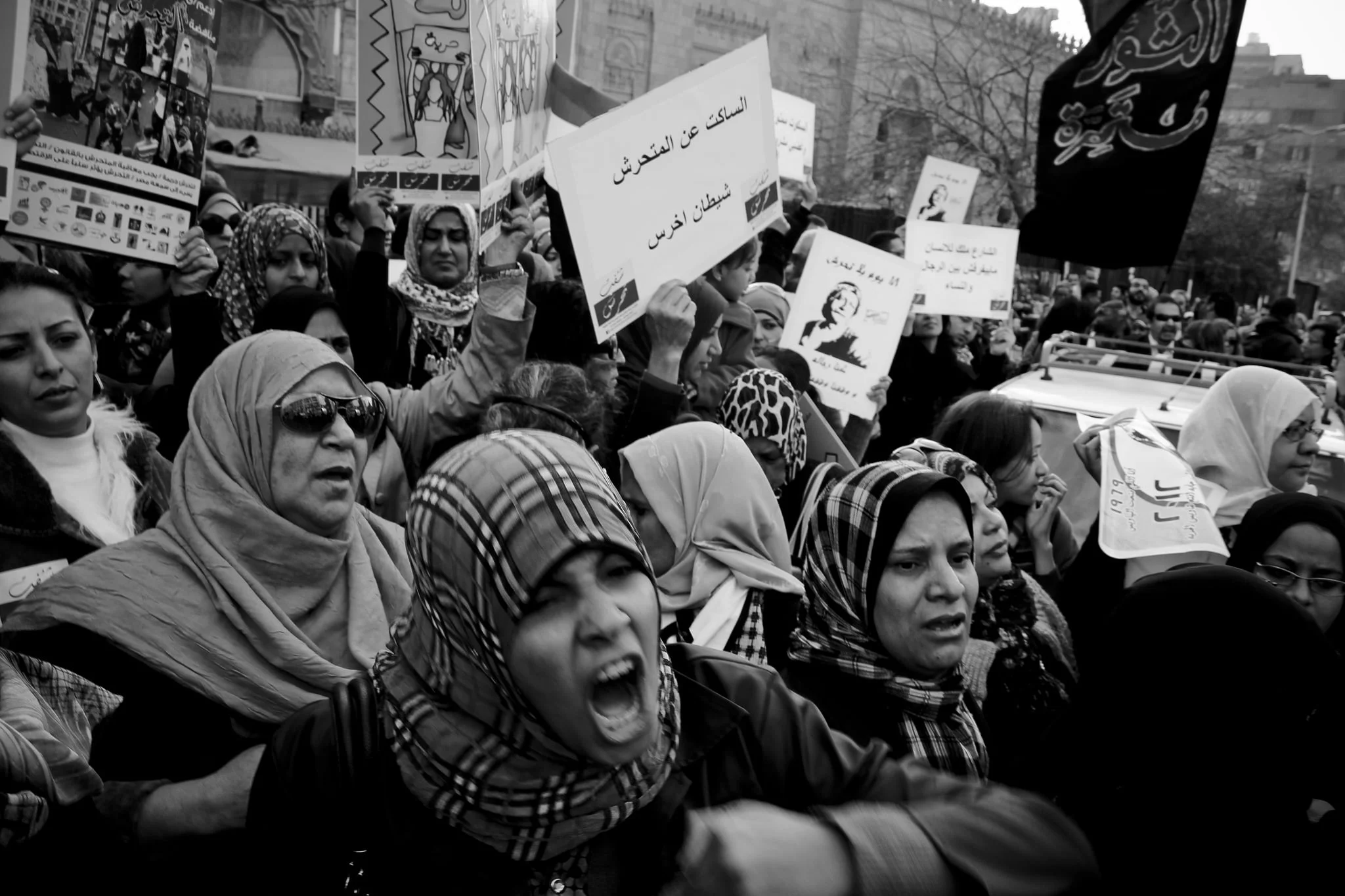The extremist Hindutva groups have always kept the Muslims on the enemy side, to create an “otherness”. Currently, a group has emerged in the minority Syrian Christian community to strengthen it. Historically, the BJP has struggled to gain electoral success in the state, as most communities have aligned themselves with the CPIM-led Left Democratic Alliance and the INC-led United Democratic Front. However, in recent years, there has been a noticeable appeasement towards the ruling BJP and Hindutva forces within the social media sphere and through statements made by church leaders.
However, in recent years, there has been a noticeable appeasement towards the ruling BJP and Hindutva forces within the social media sphere and through statements made by church leaders.
These efforts, which often revolve around campaigns such as ‘love jihad‘ and ‘narcotic jihad‘, are not solely driven by individuals, but rather by various organisations with a shared goal of promoting Islamophobia. These campaigns have also received direct or indirect support from the official church leadership. However, when examining the historical context, it becomes evident that this agenda is more rooted in casteism rather than Islamophobia. The right-leaning or hindutva leaning Syrian Christians are commonly referred to as ‘Chrisanghis‘.
Who is a ‘Chrisanghi’
It may come as a surprise to some that a faction of Syrian Christians in Kerala has aligned themselves with the RSS and BJP. The emergence of a staunchly Islamophobic Syrian Christian sect that has forged deep ideological ties with right-wing Hinduism out of hatred for Muslims. Until a few years ago they were dismissed as fringe elements by the Christian intellectuals and are called ‘Chrisanghis‘ who follow the agenda of the Sangh Parivar.
The term ‘Chrisanghis‘ became popular after a young priest used it during a speech by James Panavelil in 2021; He was condemning the debate surrounding the Malayalam film Eesho, helmed by Nadirshah, a Muslim filmmaker. Several Christian fundamentalists, including clergy members, had raised objections to the film being titled with the Malayalam equivalent of Jesus’s name. Following this speech he faced he experienced extensive cyber bullying.
This agenda is not simply spread by individuals, but dedicated organisations have been formed across Kerala like Christheeya Viswasa Prathirodikal, Pleased Catholics, Warriors of Cross, Christian Adolescents, and Christian Association Alliance for Social Action (CASA) etc. There are only two principles that lead these organisations and ‘Chrisanghis‘: Islamophobia and pride in savarna heritage. CASA, the most active group among above mentioned is growing with formation of committees across different regions of Kerala.
Most of these groups also run social media campaigns across different social media platforms filled with preaching and content that can harm communal harmony. These campaigns have often received support from official church leadership, like the declaration from the Syro-Malabar Catholic Church synod, comprising its prominent Bishops, affirming the reality of ‘Love Jihad‘ and its alleged targeting of Christian women. Mar Joseph Kallarangatt, the Bishop of the Pala Diocese, during his speech in the middle of holy mass during Eight Day Lent at Kuravilangad Church in Kottayam, said that Christian youths were allegedly being preyed upon by Muslims through what is referred to as ‘love and narcotic Jihad.’
These hate monger social media accounts are saturated with posts concerning topics like love jihad, narcotic jihad, and the anti-halal movement.
These hate monger social media accounts are saturated with posts concerning topics like love jihad, narcotic jihad, and the anti-halal movement. While they heavily emphasise instances of Christian persecution in Islamic nations, they conspicuously overlook the situation in India. Here, attacks on Christians and their establishments by Hindutva groups have sharply risen, especially since the Bharatiya Janata Party (BJP) took office. Notably, CASA and similar groups failed to condemn any of attacks on churches in India. Furthermore, it’s common to encounter posts advocating for an economic boycott of Muslims, a sentiment echoed by some mainstream politicians as well.
One of the major objectives for CASA is preventing interfaith marriages, especially those involving a Muslim groom. ‘Love jihad’ is one of the major conspiracies spread by these groups. All of these organisations endorsed Kerala Story, a film that propagates the colossal falsehood alleging that 32,000 Hindu and Christian women from Kerala were converted to Islam and recruited by the Islamic State. During the 2024 election season the Idukki Diocese even went as far as screening this film with adults only certificate to children of Sunday schools.
Apart from social media campaigns organisations like CASA is also known to conduct ‘‘awareness sessions’’ at schools for school students, spreading hate against Muslim community even among minor children. All of these campaigns like love jihad, narcotic jihad, hijab etc. contributes to ostracising Muslims, fracturing India into opposing groups through the vilification of Muslims and the propagation of Islamophobia, which is the fear or prejudice against Muslims. These campaigns not only spread hate against Muslim community, they are utterly male chauvinistic by portraying women not being capable of making life choices without male guidance.
Right-wing Christian stand: from Manipur to CAA
As mentioned above, these hate campaigns spread Islamophobia and threatens the communal harmony of the state. However, these organisations seem to ignore the attack towards Christians and Christian establishments across the country, which is on a steady rise ever since BJP government came into power. These groups portrayed the Manipur conflict, despite evidence for state support, as a conflict between two ‘uncivilised tribal groups’. They constantly claimed that there was nothing wrong in Prime ministers silence or there is nothing wrong with BJP state government in Manipur in the issue.
During the protests against CAA, which defines citizenship by religion not only these organisations, some of the church leadership and bishops themselves came in support of BJP. Father Varghese, spokesperson and secretary of the Kerala Catholic Bishops’ Council, wrote that comprehending the discussions surrounding the Citizenship Amendment Act (CAA) and the National Register of Citizens (NRC) requires an understanding of the growing influence of a radical movement known as political Islam, which is gaining traction globally. He also added that BJP is the only party capable of addressing political Islam. This was published in RSS mouthpiece Janmabhoomi.
During recent years Christians and Christian establishments including churches have been attacked throughout the country by the right wing hindutva forces.
During recent years Christians and Christian establishments including churches have been attacked throughout the country by the right wing hindutva forces. However this certain sect of Syrian Christian living in Kerala, a state where the hindutva forces haven’t gained much strength compared elsewhere, seems to think this doesn’t bother them.
Caste matters
Something to note is that if we look into these organisations, it’s all Syrian Christians, in other words elite savarana Christians or upper caste Chritians. There is little or no presence of dalit Christians. Historically, the Syrian Christian families have played a major role in the oppressive caste system of Kerala. Syrian Christians and other upper caste communities including Nairs are traditional collaborators and share many common interests, for centuries they worked together to serve the interests of ruling Rajas and Nambudiri Brahmins and played a key role in maintaining caste oppression and slavery in Kerala.
They claim that they are Brahmins converted to Christianity by St. Thomas, a claim with zero historic evidences. Archival documents suggest that the churches in Kochi were often used as a site for slave trade. The people of Dalit communities, who converted to Christianity later, also faced similar discriminations and were not integrated into the Syrian Christian community. This can be also read from the works of Pambadi John Joseph an anti caste revolutionary who worked among the Dalit Christians of Kerala.
As mentioned above, the right-wing Syrian Christian organisations of Kerala like CASA ignored the issues like the Manipur conflict. It should be noted here that the Christians attacked by right wing hindutva organisations are predominantly Dalit Christians and Adivasi Christians.
It should be noted here that the Christians attacked by right wing hindutva organisations are predominantly Dalit Christians and Adivasi Christians.
Given the global power of Syrian Christians and their historic role in maintaining Kerala’s oppressive caste order as landlords in the old feudal economy and caste-varna system, what is possible, and what is emerging, is that at least in Kerala, a negotiation is reached between the Nair-dominated RSS and the Syrian Church in which the Church will desist from criticising the RSS as far as possible and will also join in the RSS agenda of attacking Islam by linking the religion to terrorism and misogyny – which may explain why a synod of the [Syro-Malabar Catholic] Church in Kerala recently issued a statement attesting to the existence of ‘love jihad’.
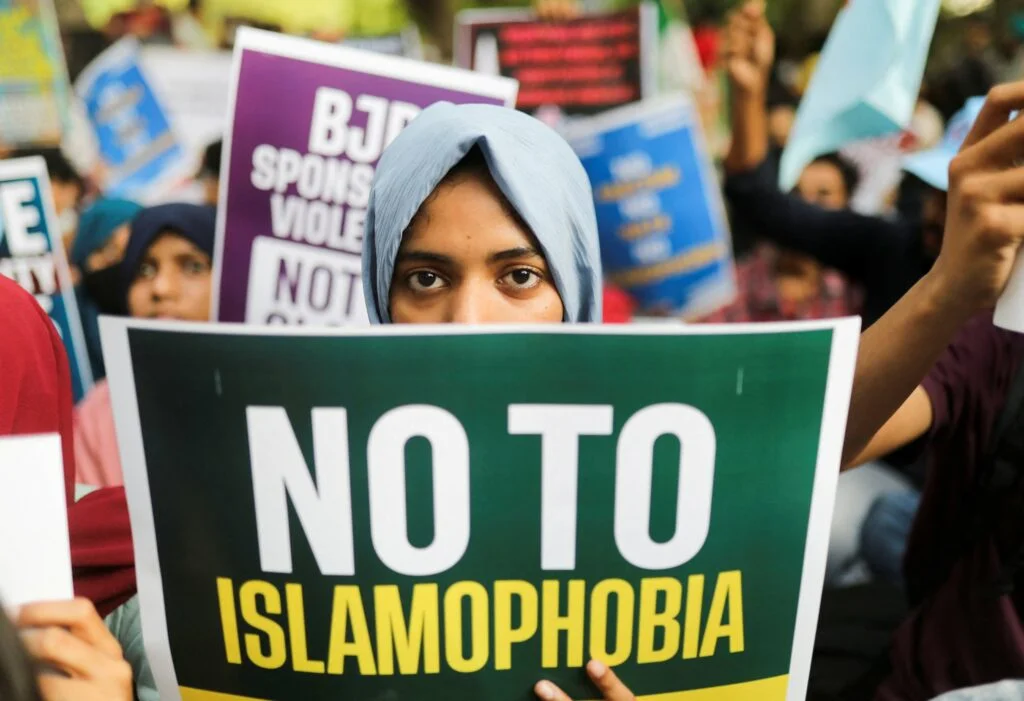
During the recent cyber attack against Mammootty, this casteism was very visible. He has been facing cyber attacks from some right-wing sympathisers online. This attack was started by CASA, over his character in the film Puzhu; released in 2022. In Puzhu, Mammootty played the role of an upper-caste Brahmin who opposes his sister’s marriage to a Dalit person. Some of those attacking the actor online, used Mammootty’s birth name, Muhammed Kutty, to criticise the national award-winning actor. These incidents reveal that, the ‘us’ they imagine in contrast to Muslim ‘otherness’ is an alliance of upper castes and excludes the dalit, bhaujan, adivasi communities.
References:
- ‘Chrisanghis’: The rise of the Christian right in Kerala, The News Minute
- Rise of Kerala Christian right is deeply rooted in Islamophobia: A look at Poonjar, Pala, The News Minute
- Why wooing Christians in Kerala will be unavoidable for the BJP, The News Minute
- What is caste discrimination in kerala chritianity, Vinil Paul, Round Table India
- Kerala: Right wing Christian group spreads anti-Muslim hate among school students, Muslim group files complaint, Maktoob Media
- Mohan, P. Sanal, ‘Discourses and Constructions of Slavery in Nineteenth- and Twentieth-century Kerala’, Modernity of Slavery: Struggles against Caste Inequality in Colonial Kerala
- Baby Paul, Vinil. “Local Networks of the Slave Trade in Colonial Kerala”. Slavery and Bondage in Asia
- Paul, Vinil Baby. “Dalit conversion memories in colonial Kerala and decolonisation of knowledge.” South Asia Research 41.2 (2021): 187-202.
